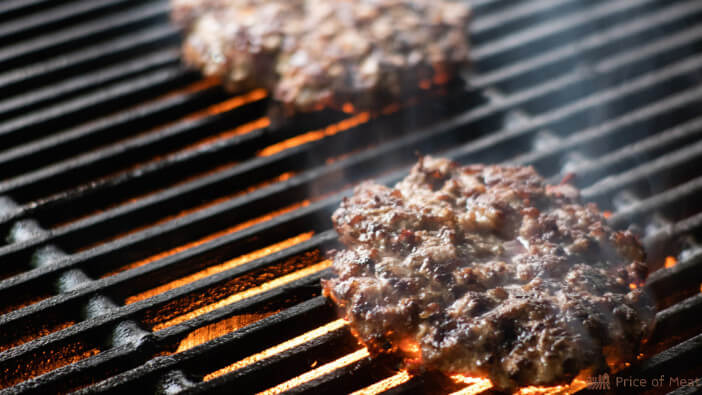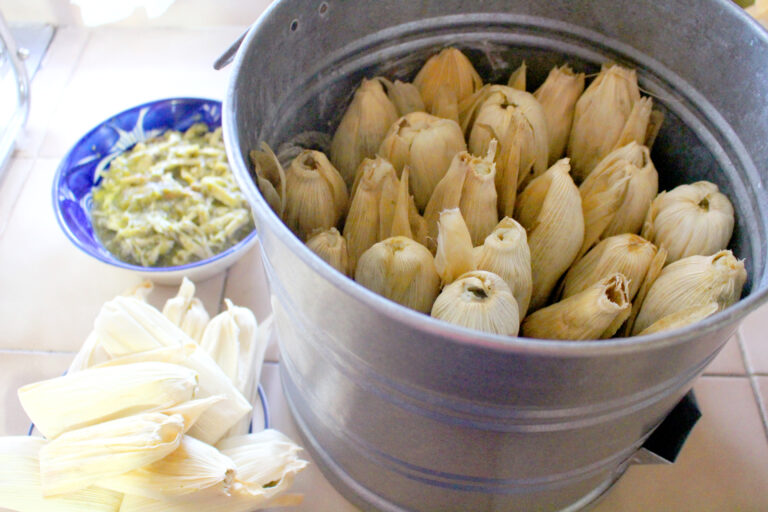7 Differences Between Charcoal vs Gas Grill to Help You Decide
Comparing Charcoal and Gas Grills: Flavor, Control, and Eco Impact; understand the key differences to choose the best grill for your needs.
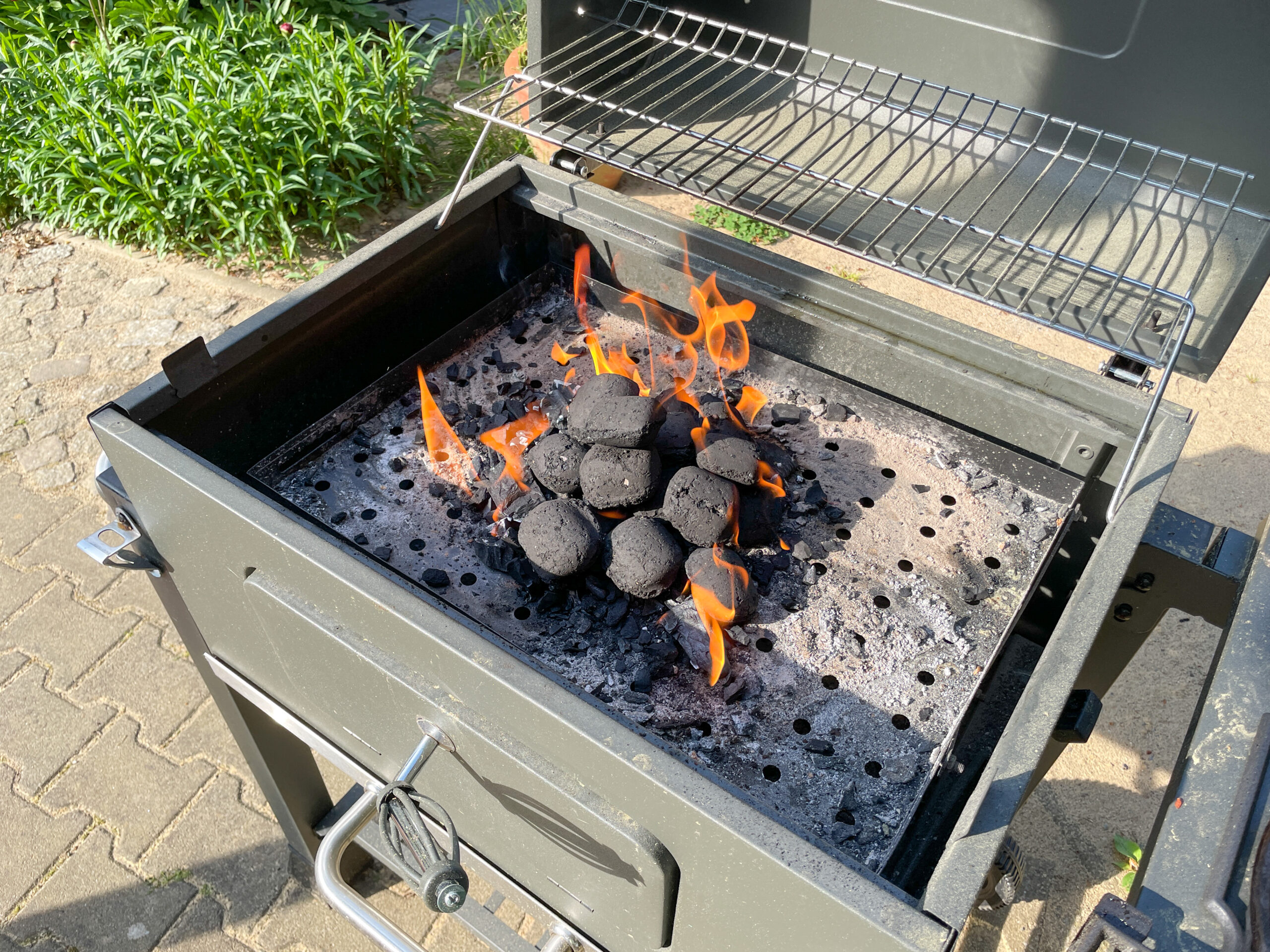
Choosing between a charcoal and gas grill can feel like a daunting task, given the unique benefits each offers. This guide breaks down the key differences to help you make the best decision for your grilling needs.
Disclosure: As an Amazon Associate, this site earns from qualifying purchases. Thank you!
History and Evolution of Grilling
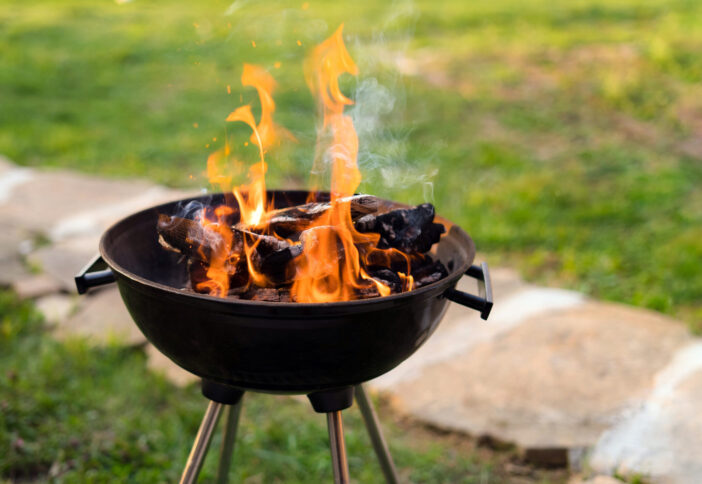
Grilling has evolved significantly over time, offering diverse methods to suit various preferences.
The Origins of Charcoal Grilling
Humans have used charcoal for cooking since about 4000 BC. Ancient Egyptians were among the first to use it, primarily for heating and smelting metals. Charcoal grilling became popular in the US during the 1940s. George Stephen, a welder, invented the iconic kettle grill in 1952 by modifying a buoy. This innovation brought controlled, high-heat cooking to backyards everywhere.
The Development of Gas Grills
Gas grilling began catching on in the 1960s. The demand for convenience led to Walter Koziol inventing the first modern gas grill in 1959. He founded Arkla, producing grills with built-in gas lines. By the 1980s, propane tanks made gas grills more portable and popular. This convenience factor revolutionized the grilling experience, offering quick and easy flame control. Utilize these innovations and choose the grilling method that best fits your style and needs.
Key Differences Between Charcoal and Gas Grills
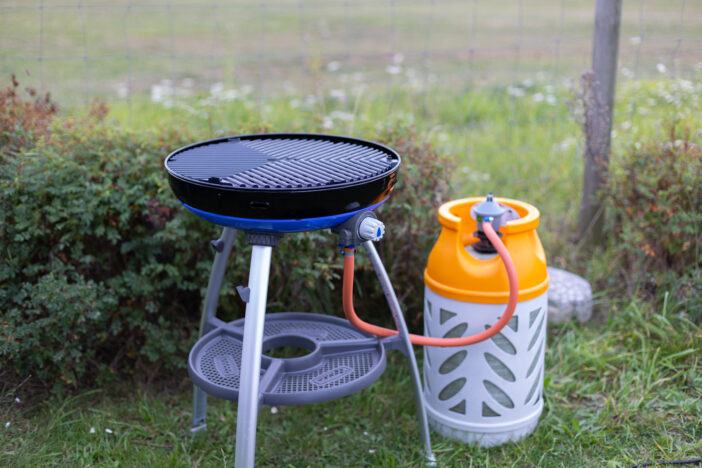
Understanding the distinctions helps you make the best choice for your grilling experience. Here’s what sets them apart:
Flavor Impact on Food
Charcoal grills give your food a smoky flavor that many grill enthusiasts love. Wood chips can be added for an extra flavor boost. Gas grills, however, offer a cleaner taste as they don’t produce smoke. Both methods cook tasty food, but the flavor profiles differ significantly.
Heat Control and Cooking Time
Charcoal grills take longer to heat up, around 15-20 minutes, but can reach higher temperatures. Controlling heat is trickier as it involves adjusting vents and moving coals. Gas grills heat up in 10 minutes or less and offer precise temperature control with simple knob adjustments.
Ease of Use and Convenience
Charcoal grills require more prep time and clean-up, making them less convenient for quick grilling sessions. Gas grills turn on with the push of a button and involve less mess, ideal for those who prefer convenience. Propane tanks need periodic refills, while charcoal must be replaced each use.
Cost Comparison of Charcoal and Gas Grills
Initial Purchase and Installation Costs
Charcoal grills are generally cheaper upfront. Basic models start around $20, while high-end versions can reach $500. Gas grills cost more initially, with entry-level models at $100 and premium models hitting up to $3,000. You’ll also need a propane tank or natural gas line, which adds to the installation cost.
Long-Term Maintenance and Fuel Expenses
Charcoal costs can add up over time. A 20-pound bag of charcoal costs about $20 and lasts for roughly 3-4 cooking sessions. Gas grills save you money long-term. A 20-pound propane tank costs about $15 to refill and can last up to 20 grilling sessions. Additionally, gas grills usually require less frequent cleaning, reducing maintenance costs.
Environmental Impact and Safety Concerns
Emissions and Sustainability
Charcoal grills emit higher levels of carbon monoxide, particulate matter, and volatile organic compounds. According to the Environmental Protection Agency, these emissions contribute to air pollution. Gas grills emit far fewer pollutants and are considered more environmentally friendly due to their cleaner fuel source.
Safety Features and Risks
Charcoal grills pose a higher risk of flare-ups and require careful management of lit coals. According to the National Fire Protection Association, improper handling of charcoal grills leads to more home fires compared to gas grills. Gas grills, on the other hand, often come equipped with safety features like auto shut-off mechanisms and built-in temperature controls, reducing the likelihood of accidents.
Pros and Cons of Charcoal Grills
Charcoal grills have their own set of advantages and disadvantages. Knowing these can help you make an informed choice.
Pros
- Superior Flavor: Charcoal grills add a distinct smoky flavor to your food, often preferred by grilling enthusiasts.
- High Heat: Achieve higher temperatures, ideal for searing steaks and creating a delicious crust.
- Affordable: Charcoal grills are generally less expensive compared to gas grills, making them accessible to more people.
- Portability: Many charcoal grills are compact and lightweight, perfect for camping or tailgating.
cons
- Longer Start Time: Charcoal grills need more time to heat up, which can be inconvenient if you’re in a hurry.
- Messy Cleanup: Handling and disposing of ash can be cumbersome and dirty.
- Inconsistent Heat: Maintaining a steady temperature requires experience, making them less user-friendly for beginners.
- Environmental Impact: Charcoal emits higher levels of pollutants, contributing to air pollution and a larger carbon footprint.
Pros and Cons of Gas Grills
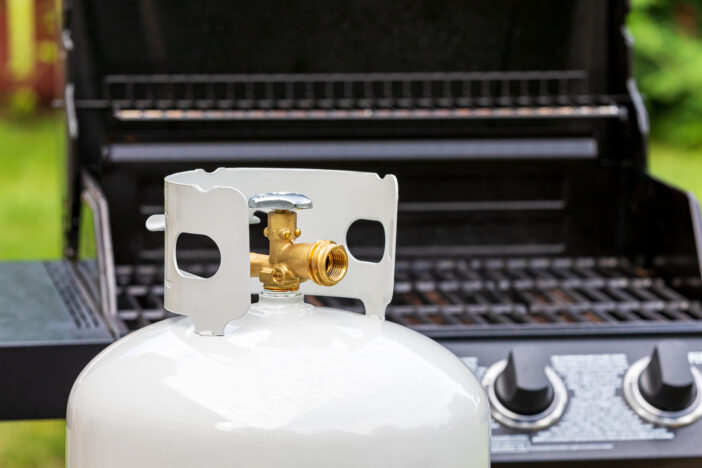
Gas grills offer convenience and control for modern grilling enthusiasts. Let’s break down their advantages and disadvantages.
Pros
- Quick Start-Up: Gas grills ignite instantly with a push of a button. No need to wait for charcoal to heat up.
- Temperature Control: Dial-in precise temperatures with adjustable knobs, making it easier to avoid overcooking.
- Cleaner Operation: Gas grills produce less smoke and ash compared to charcoal, leading to simpler cleanup.
- Versatility: Often equipped with additional features like side burners, rotisseries, and smoking boxes.
- Eco-Friendly: Emits fewer pollutants compared to charcoal, making it a greener choice.
cons
- Higher Cost: Generally more expensive upfront and for replacement parts.
- Flavor: Lacks the smoky, charred flavor that charcoal provides.
- Safety Risks: Gas leaks can be hazardous, necessitating regular checks and maintenance.
- Portability Issues: Bulkier and less portable due to the need for a propane tank or natural gas hook-up.
- Maintenance: Requires regular cleaning of burners and gas lines to ensure optimal performance.
Popular Models and Brands in the Market
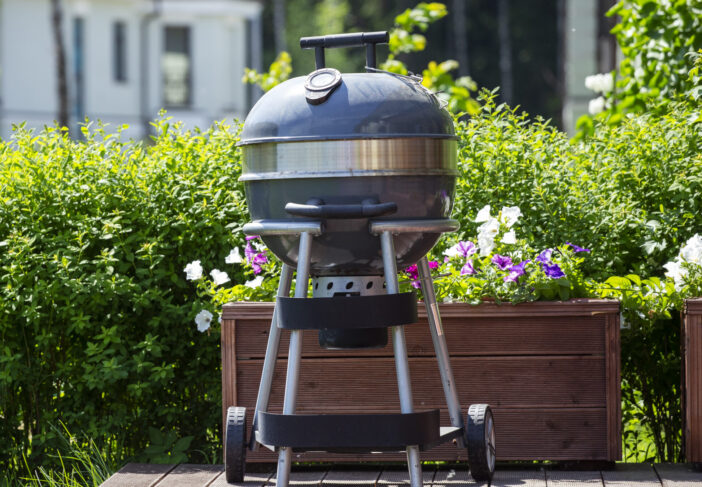
When choosing between charcoal and gas grills, knowing the top models and brands can help you make an informed decision.
Top Charcoal Grill Brands and Models
- Weber Original Kettle Premium: This classic kettle design offers excellent heat control and durability.
- Big Green Egg: Known for its versatile cooking options and exceptional insulation.
- Char-Griller Akorn Kamado: Delivers great value with insulated steel construction for consistent heat.
- PK Grills Original PK Grill & Smoker: Features a portable, retro design with unmatched durability.
Top Gas Grill Brands and Models:
- Weber Genesis II: Offers powerful heat output, precision, and innovative smart features.
- Char-Broil Performance Series: Balances affordability with strong performance and easy maintenance.
- Napoleon Prestige 500: Known for high-end features, infrared burners, and impressive heat retention.
- Broil King Regal: Combines excellent craftsmanship with versatile cooking options.
Making the Right Choice for Your Needs
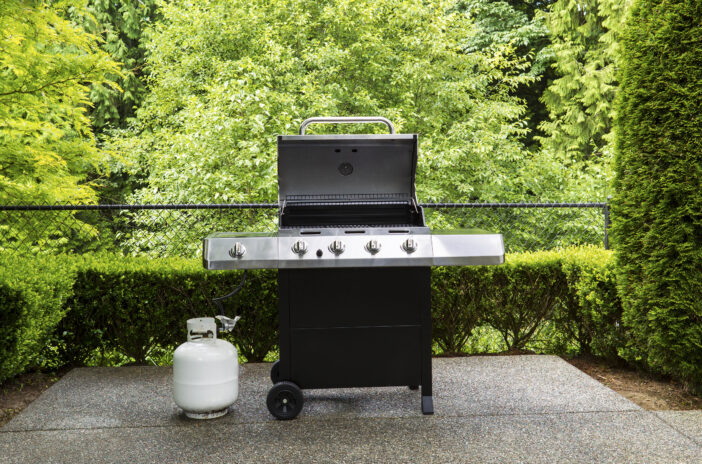
Assessing Your Grilling Style and Preferences
Understand what you prioritize in your grilling experience. If you crave authentic smoky flavors, opt for a charcoal grill. They’re perfect for slow-cooking meats and adding depth to your dishes. Prefer quick and convenient grilling with consistent results? A gas grill’s precise temperature control and faster start-up times will suit you better. Gauge your willingness to engage with the grilling process—charcoal requires more hands-on effort, while gas is for set-and-forget cooking.
Considerations for Space and Frequency of Use
Evaluate your available space and how often you’ll grill. Small patio or balcony? A compact gas grill offers space efficiency. Large backyard? You can accommodate a bigger charcoal setup or a full-sized gas model. Frequent griller? Gas grills save time with their quick ignition and minimal clean-up. Occasional griller? Charcoal grills may be more economical and offer richer flavors for those special gatherings.
Frequently Asked Questions
What are the main differences between charcoal and gas grills?
Charcoal grills provide authentic smoky flavors and are best for slow cooking, while gas grills offer quick start-up, precise temperature control, and consistent results. Gas grills are also more eco-friendly but come at a higher cost.
Which type of grill is more environmentally friendly?
Gas grills are generally more eco-friendly compared to charcoal grills. They produce fewer emissions and are more energy-efficient in comparison to their charcoal counterparts.
Is there a significant cost difference between charcoal and gas grills?
Yes, gas grills are typically more expensive upfront than charcoal grills. However, gas grills can be more cost-effective in the long run due to lower fuel costs and maintenance.
Can I achieve smoky flavors with a gas grill?
While gas grills are known for their convenience, they do not naturally impart the smoky flavors that charcoal grills do. Some gas grills have smoker boxes or wood chip trays to add a hint of smokiness.
What factors should I consider when choosing between a charcoal and gas grill?
Consider your grilling style, space availability, and frequency of use. Charcoal grills are great for smoky flavors and slow cooking, while gas grills provide convenience and control. Space and how often you grill also play important roles in your decision.
Do gas grills offer better heat control compared to charcoal grills?
Yes, gas grills offer precise heat control, making it easier to maintain consistent temperatures during cooking. This is particularly beneficial for recipes that require specific temperature settings.
Are charcoal grills more suitable for outdoor cooking enthusiasts?
Charcoal grills are often preferred by outdoor cooking enthusiasts for their ability to produce rich, smoky flavors and their traditional grilling experience. They are ideal for those who enjoy slow-cooking and experimenting with flavors.
How does space availability affect my choice of grill?
If you have limited space, a compact gas grill might be a better option due to its convenience and ease of storage. Charcoal grills, while often bulkier, offer that authentic grilling experience if space is not a constraint.
Should I consider how often I grill before choosing a grill type?
Yes, frequent grillers might benefit more from the convenience and quick start-up of gas grills. Occasional grillers who prioritize flavor over convenience might prefer charcoal grills. Consider your grilling habits to make the best choice.

